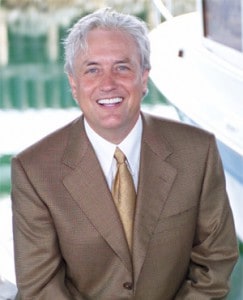Recently, Logos had the opportunity to speak with author Dr. Gregory Jantz, founder of A Place for Hope, a treatment center in Seattle for individuals struggling with addiction, depression, trauma, and other life challenges. This is the second part of a two-part interview—if you missed part one, catch up here.
Dr. Jantz, we currently have eight of your books in the Logos format, including Controlling Your Anger Before It Controls You. What can you tell us about anger? Is anger healthy or unhealthy to feel and express?
While planning this book, I realized I could exchange the word “anger” with the word “hurt.” Many times, we feel hurt and don’t know what to do with it, so it turns into anger. This book explains how to address our hurt before it becomes anger. Otherwise, the next stage is resentment, then bitterness. It creates an embittered spirit within us without our even realizing what’s occurring. [This embittered spirit] then leads to other issues, such as depression and addiction.
According to your book Healthy Habits, Happy Kids, how has culture affected interactions within families?
Culture has changed the act of sitting down to have a meal together, and that has nutritional consequences. Now we’re accustomed to this instant, fast-food culture, and even when families do sit down at the dinner table, it’s condensed because everyone is used to going so fast. Conversation is short because phones are out and texting goes on at the dinner table—that’s a problem.
You have two books that go together, Every Woman’s Guide to Managing Your Anger and Battles Men Face: Strategies to Win the War Within. What are the differences between men and women when it comes to dealing with internal struggles?
Women have a stronger tendency to internalize hurt and anger. Once internalized, that hurt and anger are transformed into something else. It may be depression; it may be an eating disorder. Men often deal with their anger more outwardly, perhaps through sports or some physical way of acting out.
In your book How to De-stress Your Life, what sources and solutions do you identify?
People become stressed, but they keep going and going. Then they become burned out, stop sleeping well, stop eating nutritiously, and yet still keep going. The final stage of stress hits, which is whole emotional exhaustion. This is the man in my office saying, “Dr. Jantz, it takes energy just to breathe.” The solution to this is to start administering self-care.
What does that self-care look like?
It’s dealing with the three deadly emotions: anger, fear, and guilt. A person who’s emotionally healthy knows not only how to manage those three, but also how to bring about a healthy response. They don’t injure themselves or others when they’re angry; they go to their faith when fear arises.
* * *
All these titles are available in the Gregory Jantz Collection.





